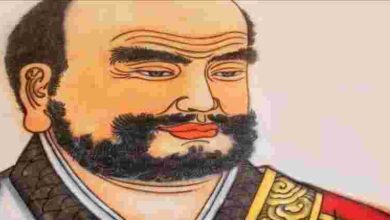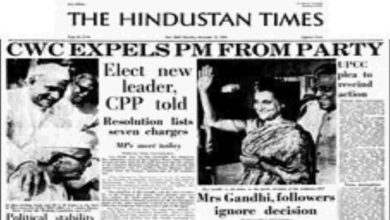अंबेडकरी आंदोलन से दूर सफाई कामगार वर्ग ambedakaree aandolan se door saphaee kaamagaar varg

©संजीव खुदशाह
परिचय– रायपुर, छत्तीसगढ़
वैसे तो दलितों में विभिन्न जातियां होती हैं। विभिन्न जातियों के पेशे भी भिन्न भिन्न होते हैं, लोकिन पूरी दलित जातियों के बड़े समूह को दो भागों में बांट कर देखा जाता रहा है। पहला चमार दलित जातियां जो मरी गाय की खाल निकालतीं और उसका मांस खातीं थीं। दूसरा सफाई कामगार जातियां जो झाड़ू लगाने से लेकर पैखाना सिर पर ढोने का काम करती रही है।
यदि अंबेडकरी आंदोलन के पिरप्रेक्ष्य में देखे तो चमार दलित जातियां आंदोलन के प्रभाव में जल्दीं आयी और तरक्की कर गई। वहीं सफाई कामगार दलित जातियां अंबेडकरी आंदोलन में थोड़ी देर से आयी या कहे बहुत कम आई और पीछे रह गई। आइये आज इसके विभिन्न पहलुओं की पड़ताल करते हैं।
क्या है अंबेडकर का प्रभाव (आंदोलन)
सन् 1930 में डॉ. आंबेडकर ने देखा की दलितों के साथ बेहद भेदभाव हो रहा है। उनका शोषण नहीं रूक रहा है। तो उन्होंने दलितों से दो अपील की (1) अपना गांव या मुहल्ले छोड़ दो, शहर में बस जाओं (2) अपना गंदा पुश्तैनी पेशा छोड़ कोई दूसरा पेशा अपनाओ। इन दो अह्वान का असर यह हुआ की शोषण की शिकार दलित जातियों के कुछ लोग अपने गांव को छोड़ कर शहर में आ बसे।
इसके लिए उन्हें उच्च जाति के लोग उन्हें गांव छोड़कर जाने नहीं देना चाहते थे। इससे उनकी सुविधाओं और आराम पसंद जिदगी के खलल पैदा हो सकती थी। उनके घर बेगारी कौन करेगा? कौन उनके मरे जानवरों को फेकेगा?
दूसरा काम यह हुआ की दलित जातियां मरे जानवरों को फेकने चमड़े निकालने का काम करने से इनकार कर दिया। इसका असर यह हुआ की गांव में दलितों के साथ मार पीट की गई। दलितों की भूखे मरने की नौबत आ गई। बावजूद इसके बहुसंख्यक दलितों ने अपना रास्ता नही छोड़ा। डॉ. आंबेडकर के आह्वान पर कायम रहे।
गौरतलब है ऐसा करने वाली दलित जातियां चमार वर्ग की थी। सफाई कामगारों ने डॉ. आंबेडकर के दोनों आह्वान का पालन नहीं किया। न वे आज भी कर रहे है। आज भी वे अपनी जातिगत गंदी बस्तियों में रहते हैं और अपना वही पुराना गंदा पेशा अपनाए हुये हैं।
इसके क्या कारण हैं यह ठीक-ठीक बताना बेहद कठिन है, लेकिन तत्कालीन परिस्थितियों को देखकर कुछ निष्कर्ष पर पहुंचा जा सकता है। उन्होंने डॉ. आंबेडकर के आह्वान को नहीं माना इसके निम्न कारण हो सकते हैं।
-
सुविधा-
उन तक बात नहीं पहुची होगी की अपने शोषणकारी गांव को छोड़ दिया जाय। उस समय (1930) सफाई कामगार जातियां ज्यादातर शहरों में निवास करती थी। वैसा कष्टकारी जीवन उन्हें देखने को नहीं मिला जैसा गांव में दलितों को मिलता है। इसलिए उनको शहर में रहने के करण गांव छोड़ने का प्रश्न नहीं उठता। रही बात उनकी गंदी बस्तियों को छोड़ने की तो उन्होंने इसलिए नहीं छोड़ा होगा क्योंकि उन्हें गांव के बनिस्पत कष्ट या शोषण कम रहा होगा। बात जो भी हो यह एक सच्चाई है कि सफाई कामगारों ने अपनी गंदी बस्तियों को नहीं छोड़ा।
-
आत्म-सम्मान नहीं जगा–
गंदे पेशे को छोड़ने का आह्वान भी सफाई कामगारों ने अनसुना कर दिया। इसका कारण था उनकी आर्थिक स्थिति, अंग्रेजों/ अफसरों से निकटता जो उन्हें सुविधाभोगी बनाती थी। वे अफसरों की तिमारदारी से लेकर सभी गंदे काम करते थे। वे झाड़ु लगाते, नाली साफ करते, मैला ढोते, उनकी जूठन खाते। उन्हें कभी अपना आत्म-सम्मान खोने का, अपना अपमान होने का एहसास नहीं हुआ। यही सब बाते उन्हें पुश्तैनी पेशे पर एकाधिकार रखने हेतु प्रेरित करती थी। इसलिए उन्होंने डॉ. आंबेडकर के इस आह्वान को भी नहीं माना।
-
सामाजिक नेतृत्व–
शुरू से आज तक सफाई कामगार जातियों में जो सामाजिक नेतृत्व मिला चाहे वो जाति पंचायत के रूप में रहा या किसी धार्मिक नेता के रूप में, उन्होंने हमेशा सफाई कामगारों का शोषण किया। उन्हे डॉ. आंबेडकर के विरुद्ध भड़काया। कहा कि वे सिर्फ चमारो के नेता हैं। इस काम में हिन्दूवादी लोग/ राजनीतिक पार्टियां मदद करती रही। सामाजिक नेता अपनी राजनीति चमकाने के लिए नये-नये गुरूओं की पूजा करने लगे, जैसे वाल्मीकि, सुदर्शन, गोगापीर, मांतग, देवक ऋषि आदि आदि। वे सारे काम इन समाजिक नेताओं द्वारा किये गये जो इन्हे अंबेडकरी आंदोलन से दूर रखे जाने के लिए किए जाने जरूरी थे। इसका एक बड़ा कारण गांधी का प्रभाव भी रहा है।
-
गांधी का प्रभाव-
इसी दौरान (1932) गांधी ने हरिजन सेवा समिति का गठन किया। वे हरिजन नामक अंग्रेजी पत्र प्रकाशित करते थे। इसके केन्द्र में उन्होंने सफाई कामगारों को रखा। वे हिन्दूवादी थे और वे नहीं चाहते थे कि दलित इस पेशे को छोड़े। उन्होंने उल्टे यह कहा कि ‘यदि मेरा अगला जन्म होगा तो मै एक भंगी के घर जन्म लेना पसंद करूगा।‘’ इसका प्रभाव यह पड़ा की सफाई कामगार अपने पेशे के प्रति झूठे उत्साह से भर गये। आत्मसम्मान के उलट अपने आपको फेविकोल से इस पेशे से जोड़ लिया।
अब प्रश्न उठता है कि सफाई कामगारों में आत्मसम्मान कब जागेगा। कब वे अपना पुश्तैनी पेशा एवं गंदी बस्तियां छोड़ेगे। कब अंबेडकरी आंदोलन से जुड़ेगे?
-
सफाई कामगारों के बर्बादी का कारण सामाजिक नेता-
सफाई कामगारों का सबसे बड़ा नुकसान उनके ही समाजिक नेताओं ने किया। इतिहास गवाह है कि किसी भी सामाजिक नेता ने डॉं. आंबेडकर के दोनों आह्वान को पूरा करने में कोई रूची नहीं दिखाई। उल्टे वे पार्टी का टिकट पाने और पद पाने के निजी लालाच में डॉ. आंबेडकर के विरुध लोगों को भड़काते रहे। यह प्रकिया आज भी जारी है।
-
धर्मान्धता–
यह देखा गया है कि जो दलित जातियां पिछड़ेपन या गरीबी का शिकार रही हैं वे अति धार्मिकता से ग्रसित रही है। सफाई कामगारों के साथ भी यही हुआ। जातीय शोषण से परेशान होकर यदि कोई धर्मांतरण करना चाहता तो उसे किसी काल्पनिक गुरू के सहारे धर्माधता में ढकेल दिया जाता। वे गरीब होने के बावजूद सारे कर्म काण्ड कर्ज लेकर करते। भले ही बच्चों को शिक्षा देने के लिए पैसे न हो। आज भी धर्मांधता सफाई कामगारों के पिछड़ेपन का एक बड़ा करण है।
-
नशा-
सफाई कामगार के परिवार ज्यादतर नशे के गिरफ्त में होते है। नशे के कारण वे अपने पेशे आत्म-सम्मान के बारे में सोच नहीं पाते है। नशा करना, घर की महिलाओं से या आपस में झगड़ना उनकी दैनिक दिनचर्या का अहम हिस्सा है।
-
आलस–
आमतौर पर सफाई कामगारों द्वारा यह सुना जाता है कि अपना वाला काम करो बड़े मजे हैं। रोज सुबह एक दो घंटा काम करों। दिन भर का आराम। यह देखा गया है कि इस काम में मेहनत कम होने के कारण लोग इस काम को छोड़ना नहीं चाहते। दूसरा कारण यह है कि घरों में सेफ्टी टैक साफ करने के ऊंचे दाम मिलते हैं। अगर एक दिन में दो घरों का काम मिल गया तो इतने पैसे आ जाते है कि एक हफ्ता काम करने की जरूरत नहीं पड़ती। शहरकरण ने आम लोगों को इस काम के ऊंचे दाम देने के लिए मजबूर किया है।
तो प्रश्न यह उठता है कि सफाई कामगार कब अपनी गंदी बस्ती और गंदे पेशे को छोड़ेगा?
यह तभी होगा जब वह अंबेडकरी आंदोलन से जुड़ेगा। सामाजिक नेता, धर्मांधता, नशे के गिरफ्त से बाहर निकलेगा और आलस को त्यागेगा। उसे खुद सोचना होगा कि क्यों वह आज तक इतना पिछड़ा है। पेरियार कहते हैं कि जिस समाज का आत्मसम्मान नहीं होता वह कीड़ों के एक झुण्ड के बराबर है। इसलिए आत्मसम्मान जगाना होगा। इस काम में समाज के ही अंबेडकरवादी पेरियार वादी बुद्धिजीवियों सामाजिक कार्यकर्ताओं को आगे आना होगा तभी इस समाज में आत्म-सम्मान जागेगा और सफाई कामगार समुदाय अंबेडकरी आंदोलन से जुड़ेगा।
लेखक संजीव खुदशाह अम्बेडकरी आंदोलन से जुड़े हैं। सफाई कर्मचारियों पर उनकी लिखी पुस्तक काफी चर्चित है।

Sanjeev Khudshah
Cleanliness working class away from Ambedkarite movement
By the way, there are different castes among Dalits. The professions of different castes are also different, but the large group of the entire Dalit castes has been seen to be divided into two parts. The first Chamar Dalit castes used to skin the dead cow and eat its meat. Second, the sanitation worker castes, who have been working from sweeping to carrying paikhana on the head.
If seen from the perspective of Ambedkarite movement, Chamar Dalit castes came under the influence of the movement and progressed quickly. On the other hand, the Safai Karamgar Dalit castes came a little late in the Ambedkarite movement or say little and remained behind. Let us examine its various aspects today.
What is Ambedkar’s influence (movement)
In the year 1930, Dr. Ambedkar saw that there is a lot of discrimination against the Dalits. Their exploitation is not stopping. So he made two appeals to the Dalits (1) Leave your village or locality, settle in the city (2) Leave your dirty ancestral profession and adopt some other profession. The effect of these two calls was that some people of the Dalit castes who were victims of exploitation left their villages and settled in the city.
For this, the upper caste people did not want to let them leave the village. This could have disturbed their life liking of amenities and comforts. Who will do begari in their house? Who will throw away their dead animals?
The second thing that happened was that the Dalit castes refused to do the work of removing the leather by throwing the dead animals. Its effect was that Dalits were beaten up in the village. Dalits had come to the point of starvation. Despite this, the majority of Dalits did not leave their way. Stayed on the call of Dr. Ambedkar.
Significantly, the Dalit castes who did this belonged to the Chamar class. The sanitation workers did not follow both the calls of Dr. Ambedkar. Neither are they doing it today. Even today they live in their caste-based slums and are following their same old dirty profession.
It is very difficult to say exactly what are the reasons for this, but some conclusions can be reached by looking at the prevailing circumstances. He did not heed the call of Dr. Ambedkar, this could be due to the following reasons.
1) Convenience-
The talk would not have reached to them that their exploitative village should be abandoned. At that time (1930) the sanitation worker castes mostly resided in the cities. He did not get to see such a painful life as Dalits get in the village. Therefore, the question of him leaving the village to stay in the city does not arise. As for leaving their filthy settlements, they would not have left because they would have had less suffering or exploitation than the village. Be that as it may, it is a fact that the sanitation workers did not leave their slums.
2) Did not wake up self-esteem-
The call to leave the dirty profession was also ignored by the sanitation workers. The reason for this was their economic condition, proximity to the British/officers which made them convenient. They used to do all the dirty work from the care of the officers. They used to sweep, clean the drain, scavenge, eat their leftovers. He never felt that he was humiliated, of losing his self-respect. All these things motivated them to monopolize the ancestral profession. That is why he did not even heed this call of Dr. Ambedkar.
3) Social Leadership-
The social leadership that the Safai Karamgar castes received from the beginning till date, whether it was in the form of caste panchayat or as a religious leader, they always exploited the sanitation workers. He instigated them against Dr. Ambedkar. Said that he is only the leader of Chamaro. Hindutva people / political parties kept helping in this work. Social leaders started worshiping new gurus like Valmiki, Sudarshan, Gogapir, Mantag, Devak Rishi etc. to shine their politics. All those works were done by these social leaders which needed to be done to keep them away from the Ambedkarite movement. Gandhi’s influence has also been a major reason for this.
4) Gandhi’s influence-
During this (1932) Gandhi formed the Harijan Seva Samiti. He used to publish English papers called Harijans. At the center of this he placed the sanitation workers. They were Hinduists and they did not want Dalits to leave this profession. On the contrary, he said that ‘If I have a next birth, I would like to be born in the house of a Bhangi’. In contrast to self-respect, he associated himself with this profession with Fevicol.
Now the question arises that when will the self-esteem of the sanitation workers wake up. When will they leave their ancestral profession and filthy settlements. When will Ambedkar join the movement?
5) The cause of the ruin of the sanitation workers is the social leader-
The biggest loss of the sanitation workers was done by their own social leaders. History is witness that any social leader has done Dr. There was no interest in fulfilling both the calls of Ambedkar. On the contrary, he continued to instigate people against Dr. Ambedkar in the personal greed of getting party ticket and getting the post. This process continues even today.
1) Bigotry-
It has been observed that the Dalit castes who have been victims of backwardness or poverty have been suffering from extreme religiosity. The same thing happened with the cleaning workers. Disturbed by caste exploitation, if anyone wanted to convert, he would have been pushed into bigotry with the help of an imaginary teacher. Despite being poor, he would do all the rituals by taking loans. Even if there is no money to educate the children. Even today bigotry is a major cause of backwardness of the sanitation workers.
2) Intoxication-
Families of sanitation workers are mostly in the grip of drugs. Due to intoxication, they are unable to think about their profession, self-esteem. Taking drugs, quarreling with the women of the house or amongst themselves is an important part of their daily routine.
3) Laziness-
It is generally heard by the cleaning workers that doing your own work is a lot of fun. Work for a couple of hours every morning. All day rest. It has been seen that people do not want to leave this work due to less effort in this work. The second reason is that the high cost of cleaning the safety tech in the house is available. If we get the work of two houses in one day, then so much money comes that there is no need to work for a week. Urbanization has forced the common people to pay high prices for this work.
So the question arises that when will the sanitation worker leave his slum and dirty profession?
This will happen only if he joins the Ambedkarite movement. The social leader will come out of the clutches of bigotry, intoxication and will give up laziness. He has to think for himself that why he is so backward till date. Periyar says that a society which does not have self-respect is like a bunch of insects. So self-esteem has to be raised. In this work, the Ambedkarite Periyar intellectuals and social workers of the society will have to come forward, only then self-respect will awaken in this society and the sanitation workers community will join the Ambedkarite movement.
The author Sanjeev Khudshah is associated with the Ambedkarite movement. His book on sanitation workers is quite popular.















